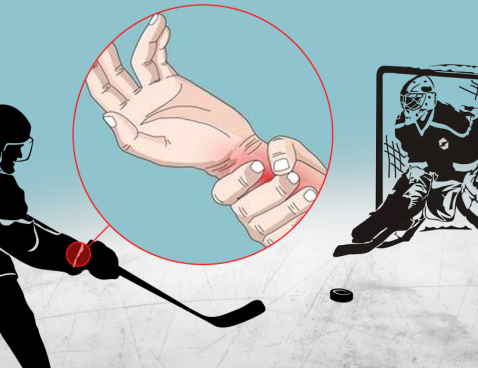Written by
Scott Murray
Scott Murray is the player-coach-GM of Thailand's fabled expat hockey squad, the Flying Farangs. He is also the Vice President of the Siam Hockey League and a lifelong hockey fan and aficionado, remembering attending original six games at Maple Leaf Gardens.
- March 7, 2022
- Product Insight
Managing expectations plays a great role in the development of a young hockey player for both parent and child. A parent may have loved the game and been good at it but it doesn’t mean that their child will be. Transference can be difficult, and although at times we all may live vicariously through our children be careful of setting up shop there.
Communication is the key: constantly checking in to see if your child is still enjoying the game. Is that same excitement there when you throw the hockey bag in the car and head to the rink? Are they making up reasons not to go to the rink? Feigning illness? Bullying could be involved or maybe even a problem with a coach.
A child’s natural athletic ability has a lot to do with the expectations you may have for them. But some kids shun the spotlight and like to see their teammates succeed. They pass instead of trying to score themselves.
The kids with the great shot and dangling ability tend to get the attention as does the goalie that makes the big save. The kid who makes a good defensive play — not so much. So it’s imperative to recognize your child’s contribution to the team and praise them for it. A defensive defenseman or a good two-way forward may not pull the fans out of their seats but their contribution is as valuable to the team’s success as that of star forward if they are preventing goals.


There’s nothing wrong with dreaming about playing in the NHL, we all have, but unrealistic expectations can do more harm than good. Again, communication is a key, what does your child hope to get out of the game? Sometimes they are playing or trying hard just to please their parent and this can cause anxiety and stunt their development.
Its hard being a good hockey parent, especially with the long hours and costs involved, but monitoring a child’s game can help. Things like asking them after the game what do they think they did right, in what areas do they think need to improve, how do they want to get better? If a child is in a supportive environment, he or she will respond much better to extra training sessions and practice.
Also be careful about venting frustrations about a coach, official or league administrator in front of a child. They may subconsciously think that they may part of the reason you are unhappy.
Life can be difficult and hockey teaches us lessons that we can use to overcome obstacles in it. Children will be cut from all-star teams, they may not see power-play or penalty-kill time minutes and they may not be able to translate the success they have in practice into real games.
Be careful to watch that a child is not putting undue pressure on themselves. They may be setting unattainable goals to compensate for trouble at home or school and this can dampen their enthusiasm of the game.
It’s important to be there for them to help them understand that not everyone can be Connor McDavid and almost every player has been disappointed by a coach’s or management decision at some point in their career. Hockey, like life, is full of successes and failures, and it doesn’t matter if you get it right the first time as long as you keep on trying.




